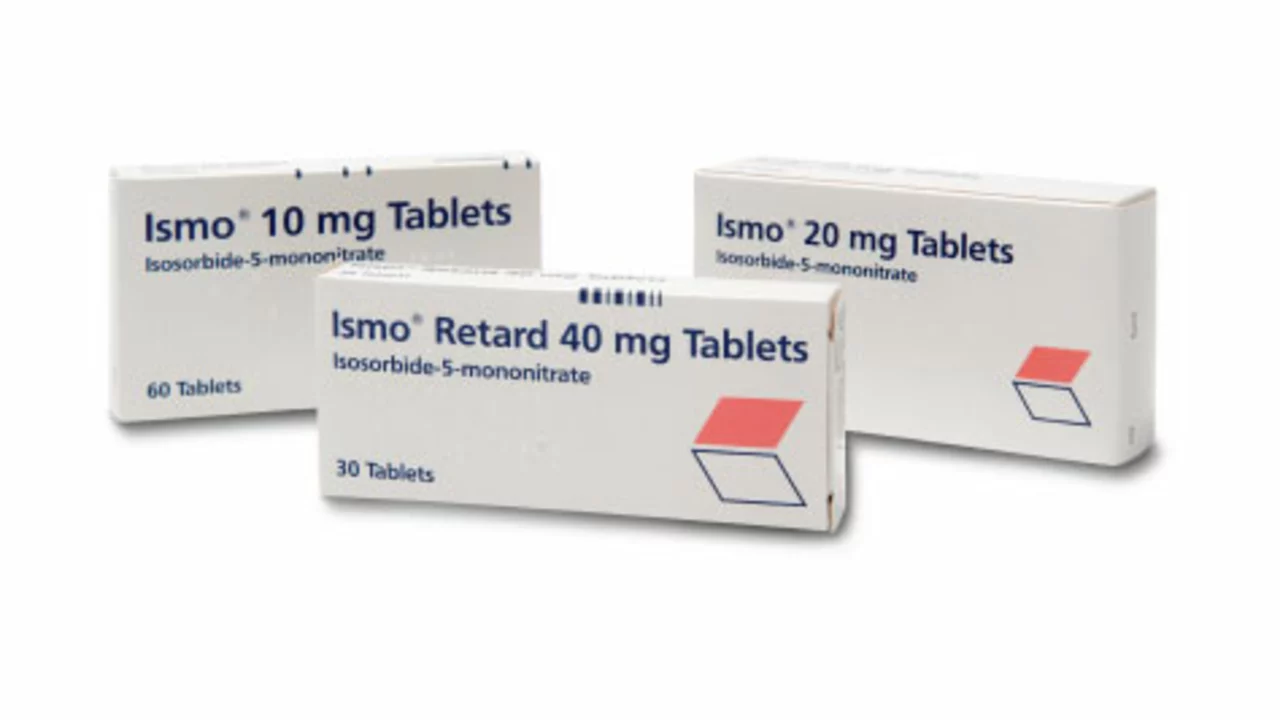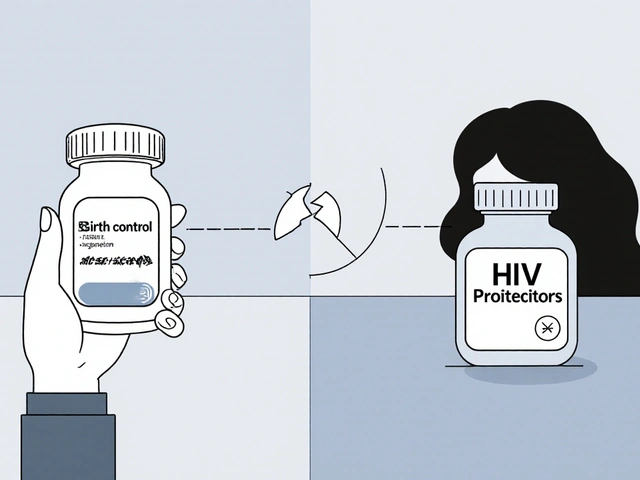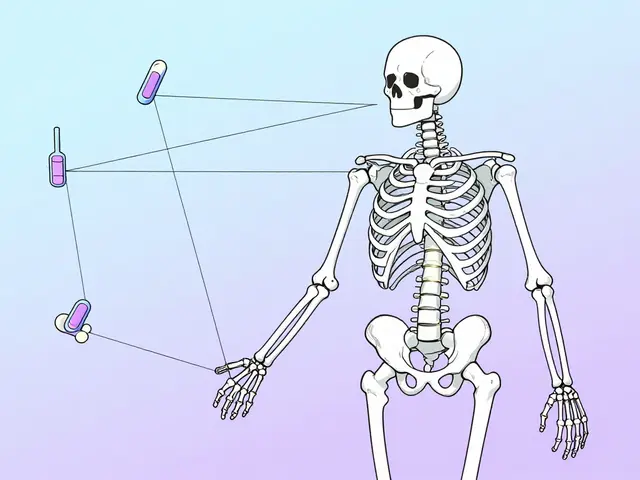Understanding Angina and the Role of Isosorbide Mononitrate
As a caregiver for a loved one with angina, it is essential to understand the condition and how medications like isosorbide mononitrate can help manage it. Angina is chest pain or discomfort that occurs when the heart muscle doesn't receive enough oxygen-rich blood. This can be due to narrowed or blocked arteries, which are responsible for supplying blood to the heart. Isosorbide mononitrate is a medication that helps widen these blood vessels, allowing more oxygen-rich blood to reach the heart, thus reducing the symptoms of angina.
It is important to remember that isosorbide mononitrate is not a cure for angina but rather a management tool. As a caregiver, you will play a crucial role in ensuring that your loved one takes the medication as prescribed and follows a healthy lifestyle to minimize angina episodes. This article will provide you with a comprehensive guide on how to help your loved one manage their angina with isosorbide mononitrate.
Administering Isosorbide Mononitrate Correctly
One of the most important aspects of helping your loved one manage their angina is ensuring that they take their isosorbide mononitrate correctly. This medication is typically prescribed as a tablet or capsule, to be taken orally once or twice a day. Make sure to follow the doctor's specific instructions regarding the dosage and frequency of administration.
It is crucial to take isosorbide mononitrate at the same time each day, as this helps maintain a consistent level of the medication in the body. If your loved one misses a dose, encourage them to take it as soon as they remember, unless it is almost time for their next dose. In that case, they should skip the missed dose and continue with their regular schedule. Doubling up on doses can be dangerous and should be avoided.
Additionally, it is essential to store the medication in a cool, dry place, away from moisture and heat, and out of reach of children and pets. Proper storage ensures the medication remains effective and safe to use.
Monitoring for Side Effects and Interactions
As a caregiver, it is vital to be aware of the potential side effects and interactions that may occur with isosorbide mononitrate. Common side effects include headache, dizziness, lightheadedness, and flushing. These side effects are usually mild and tend to subside as the body becomes accustomed to the medication. However, if they persist or worsen, it is important to contact your loved one's healthcare provider for guidance.
More serious side effects, although rare, can include severe chest pain, rapid or irregular heartbeat, and fainting. If your loved one experiences any of these symptoms, seek immediate medical attention. Additionally, be on the lookout for signs of an allergic reaction, such as rash, itching, swelling, or difficulty breathing.
Isosorbide mononitrate can interact with other medications, including certain blood pressure medications, erectile dysfunction medications, and riociguat, a drug used to treat pulmonary hypertension. Make sure your loved one's healthcare provider is aware of all the medications and supplements they are taking to avoid potential interactions.
Encouraging a Heart-Healthy Lifestyle
While isosorbide mononitrate can help manage the symptoms of angina, adopting a heart-healthy lifestyle is essential for overall cardiovascular health. Encourage your loved one to eat a balanced diet rich in fruits, vegetables, whole grains, lean protein, and healthy fats. This can help maintain a healthy weight, lower cholesterol levels, and reduce the risk of heart disease.
Physical activity is also important for heart health. Help your loved one find an exercise routine that they enjoy and can safely participate in, such as walking, swimming, or yoga. Aim for at least 150 minutes of moderate-intensity exercise per week, as recommended by the American Heart Association. Be sure to consult with their healthcare provider before starting any new exercise regimen.
Additionally, encourage your loved one to quit smoking, limit alcohol consumption, and manage stress, as these factors can negatively impact heart health and worsen angina symptoms.
Knowing When to Seek Emergency Help
Despite your best efforts to help your loved one manage their angina with isosorbide mononitrate and a heart-healthy lifestyle, emergencies can still occur. It is crucial to know the signs of a heart attack and when to seek immediate medical attention. These signs can include chest pain or discomfort that doesn't improve with rest or medication, shortness of breath, cold sweats, nausea, lightheadedness, and unexplained fatigue.
If your loved one experiences any of these symptoms, call 911 or your local emergency number right away. Quick action can help minimize damage to the heart and improve the chances of a full recovery.
As a caregiver, you play a crucial role in your loved one's journey to manage angina. By understanding the condition, administering isosorbide mononitrate correctly, monitoring for side effects and interactions, encouraging a heart-healthy lifestyle, and knowing when to seek emergency help, you can help your loved one live a healthier, more comfortable life.






Sonia Festa
I swear, this post could’ve been a tweet. Like, sure, it’s thorough, but who has time to read this whole novel? 🤦♀️
Sara Allen
I don't trust this stuff. My cousin took that medicine and now he's on a ventilator. Big Pharma is just selling poison wrapped in a nice website. And don't even get me started on how they got the FDA to sign off on this. They're all in on it. 💀
Amina Kmiha
Okay but have you seen the price of this stuff?? 🤨 I mean, it's literally a $200 pill for something that could be fixed with a walk and a prayer. And don't even get me started on how the doctors are paid by the pharma companies. I'm telling you, this whole thing is a scam. Plus, I saw a TikTok where someone said isosorbide mononitrate causes your eyes to turn purple. Not joking. 🧪👁️💜
Ryan Tanner
This is actually super helpful! My grandma’s been on this med for 3 years now and she’s walking 2 miles every morning. Just gotta keep it consistent and watch for the headaches - those are rough at first but they fade. You got this! 💪❤️
Jessica Adelle
I find it deeply concerning that such a medically significant topic is presented in such a colloquial and unprofessional manner. The use of hyperbolic language and lack of formal citation undermines the credibility of the entire piece. One would expect a higher standard of discourse when discussing cardiovascular pharmacology.
Sai Ahmed
They say it helps... but I heard from a guy in Mumbai who said the real cause is 5G towers messing with your heart rhythm. And this med? Just a placebo with a fancy name. My uncle took it and got worse. Coincidence? I think not.
Albert Schueller
I've noticed a few typos in this article. For instance, 'oxigen' instead of 'oxygen' - which is concerning, because if they can't spell it right, how can we trust the dosage instructions? Also, why is the link pointing to a .su domain? That's not a legitimate pharmacy. Red flag.
Ted Carr
Ah yes. The classic 'eat more kale and walk your dog' advice. Because clearly, the real issue here is that people just need to be more Pinterest-perfect. Meanwhile, the heart’s screaming and someone’s handing out pills like candy at a parade. 🎭
Rebecca Parkos
This is so important. I’ve been caring for my dad for 4 years now and this stuff saved his life. But honestly? The hardest part isn’t the meds - it’s watching him feel guilty because he can’t do the things he used to. If you’re reading this and you’re a caregiver - you’re not just helping. You’re holding someone’s world together. And that’s everything.